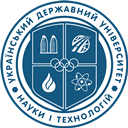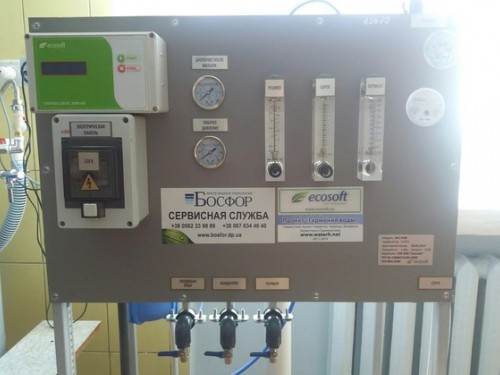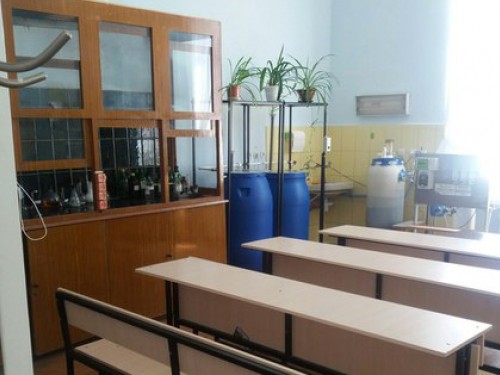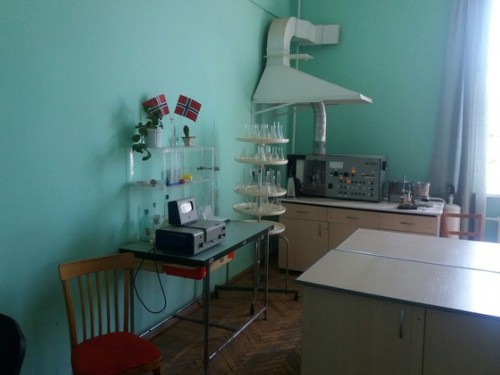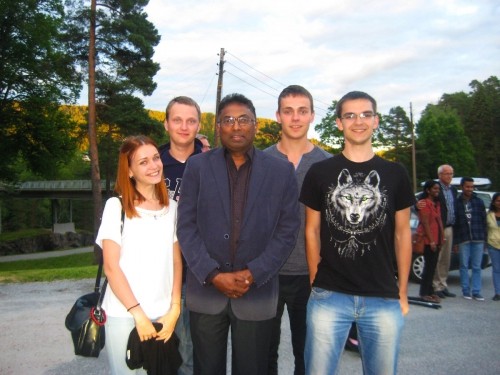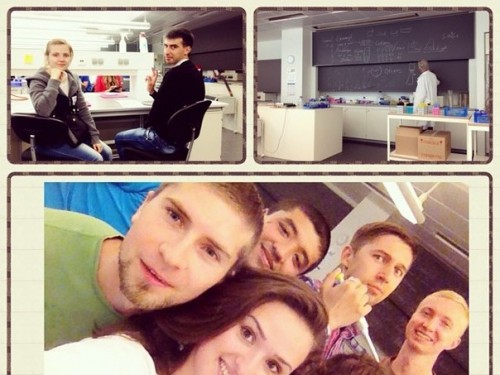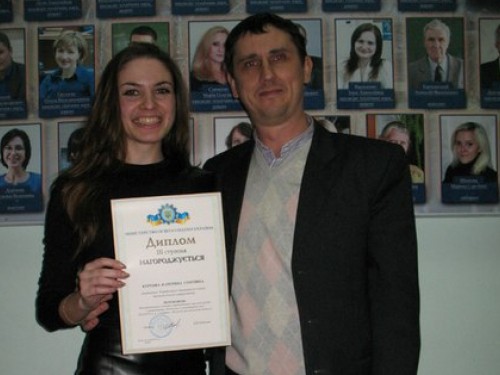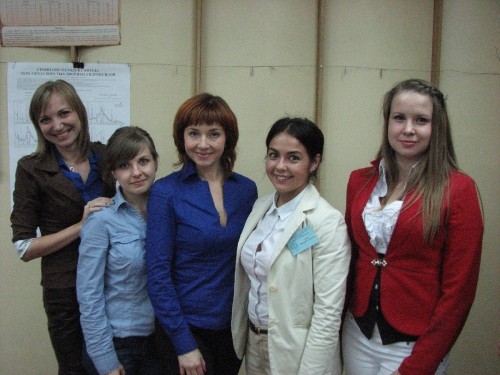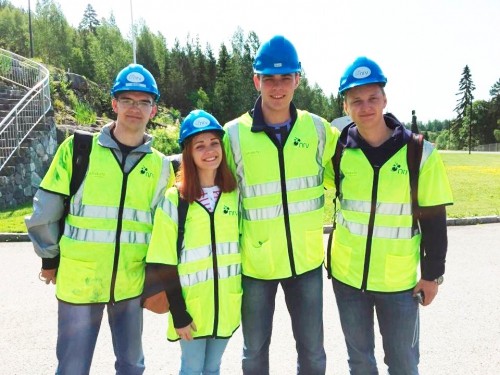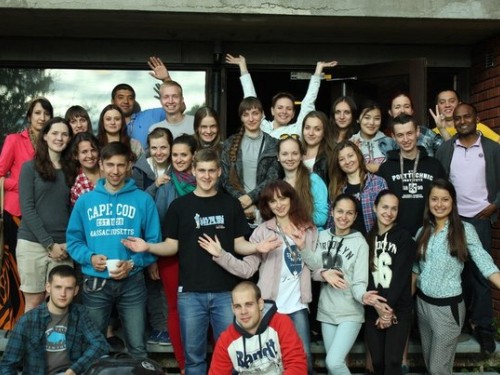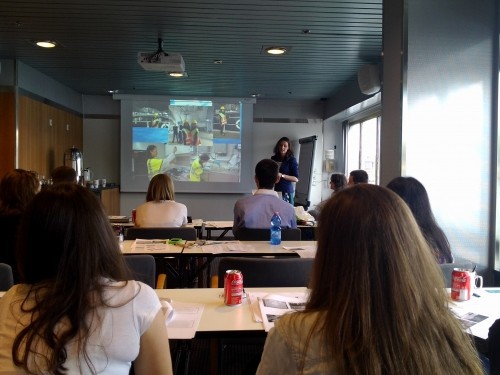DEPARTMENT OF INORGANIC SUBSTANCES AND ECOLOGY
The following courses are taught at the Department for students who receive education for the bachelor's degree "Ecology" and specialization in the field "Ecology, Environment protection, balanced use of nature":
- Entry to the profession
- Environmental expertise
- Landscape ecology
- Human ecology
- Technoecology
- Ecological safety
- Utilization and recovery of waste
- Gas purification technology
- Theoretical fundamentals of environmental protection
- Water supply, drainage, improvement of water quality
- Radioecology
- Equipment and design of environmental technologies
The following disciplines are taught at the department for the students who receive education for the degree in "Chemical technology and engineering" and specialization in the direction "Chemical technology" for the educational program "Technology of water treatment and water treatment":
- Theoretical foundations of the technology of inorganic substances
- Chemical technologies of inorganic substances
- Water treatment and water supply
- Technology of sewage treatment
- Technology of catalysts and adsorbents.
- Industry equipment and design basics
The following courses are taught at the Department for students who receive education for the bachelor's degree "Chemical Technology and Engineering" and specialization in the field of "Chemical Technology" in the educational program "Chemical technologies of inorganic substances, rare scattered elements and nanomaterials":
- Introduction to specialty
- Theoretical foundations of technology of inorganic substances and rare, scattered elements
- Chemical technology of rare and scattered elements
- Chemistry of a solid body
- Fundamentals of Nuclear Physics, Radiochemistry and Dosimetry
- Methods of research of physical and chemical properties of inorganic substances
- Chemical technology of industrial gases
- Chemical technologies of noble and platinum metals
- Chemical technology of bound nitrogen and nitric acid
- Chemical technology of sulfuric acid production
- Chemical production technology of mineral fertilizers
- Chemical technology of caustic and soda ash production
- The technology of removing noble and platinum metals from secondary raw materials and the ecology of the industry
- Non-waste technology and environmental industries
- Technology of Materials of Nuclear Energy and Isotopes
- Technology of recycling and burial of radioactive waste
- Industry equipment and design basics
- Technology of inorganic substances (Water treatment)
While studying in the cozy auditorium of the university, and, in particular, the Faculty of Technology of Inorganic Substances, students study basic subjects as well as special training. Each academic discipline contains in its composition a theoretical and practical (laboratory) block of classes. All practical classes are held in the laboratories of the department, equipped with modern analytical equipment and experimental facilities. Within the framework of the International project “Water harmony”, the department has two specialized laboratories for water treatment according to the European standards of student training.
Every summer students can take three-week courses of study at different universities in the world within the framework of international projects of the department.
“SUMMER SCHOOL” IN NORWAY
STUDENT MOBILITY WITHIN THE “WATER HARMONY-2” PROJECT
Since March 2016 the project “Water Harmony-2” has started its work within the framework of the International project CPEA-2015/10036 “Water Harmony – Integration of Education, Research, Innovation and Entrepreneurship”.
The project provides internships for students from partner universities in Norway at NMBU. This year, during the three weeks during the period 25.06-16.07.2016, students from partner universities of SHEI USUCT – 2 people, NTUU “KPI” – 3 people, CHSTU – 2 people were selected and sent to “summer courses ”Within student mobility. For two weeks, Ukrainian students, along with students from Sri Lanka, Bangladesh, Moldova, Belarus and Cambodia, attended the THT-311 (Water Resources Management and Treatment Technologies) course at NMBU, as well as an additional lecture course at HSN (Southeastern College) Norway, Telemark). There were a number of interesting laboratory works where they were able to work with modern analytical equipment. Listened to lectures on the design and layout of water treatment plants, organization of online monitoring, possible ways to increase the capacity and quality of water treatment with the use of new equipment. In addition, they worked with simulation programs for water treatment systems. An incredible impression on the students made both the approach to teaching and the content of the course. “The lectures were held in an interactive format. Teachers made presentations – which were broadcast with the help of a projector, with students having accurate copies of these presentations. Presentation slides contain all the important information, and while students were delving into this information, teachers diluted it with supporting facts. In general, the time for mastering the lecture is short, since the maximum visual memory is involved, as well as associative,”said Yuriy Kalambet, a 5th year student of USUCT. On-line monitoring of water treatment plants has become one of the most interesting learning points. This innovation can successfully automate the process of water treatment, and also significantly reduces the cost of the enterprise itself. When using this system, a person has the ability to control the work of the station on his smartphone – based on water quality at different stages of water treatment, which is undoubtedly an excellent method of saving resources and energy.
After completing the course, students prepared coursework in the form of a project dedicated to the modernization of the existing water treatment plant, which students were acquainted with during the excursions. During their studies, students have free access to an international database of scientific resources, which improves the quality of the scientific components of the course work.
In addition to intensive work, students have the opportunity to travel. The children visited the following cities: Be (Telemark), Oslo, Shi. Visited places such as: industrial fjords, drinking and waste water treatment plants, hydroelectric power plants, and saw in these examples how important it is today to competently and rationally allocate resources and be able to use them properly. Drinking water flows in the cranes of Norway, and the small water treatment plant is so powerful that it supplies several cities with drinking water, including: Be (Telemark) and Oslo – Norway’s largest city. It should be noted that such a comprehensive approach in the organization of the educational process and leisure of students harmonizes and broadens the scientific content, enhances the competence of students of partner universities.
SCIENTIFIC ACTIVITY OF STUDENTS
In addition to regular studies, the department students have the opportunity to carry out scientific research. There are various scientific fields at the department, where a leather student will be able to find interesting and modern topics for himself and his scientific advisor. The results of the research students can present at student conferences, olympiads, competitions and publish in the form of articles, reports.
Due to the fruitful work of students and their scientific supervisors, the relevance of research topics and the innovative method of their solution, our students are winners of university, regional and all-Ukrainian competitions.
Students with the highest theoretical training in the specialty have the opportunity to study and conduct research for 6 months and 1 year at the Norwegian University of Natural Sciences.
PLACES OF WORK OF THE DEPARTMENT GRADUATES
- DNIPRO: “EVRAZ-DMZ after Petrovsky”, City Water Supply, Lomov Pumping Station, Left Bank
- Pumping Station, Dnipropetrovsk Machine-Building Plant, Southern Machine-Building Plant.
- DNIPROZERZHINS’K: OJSC “DniproAzot”, SE “Pridneprovsk State Metallurgical Plant”, SE “Zirconium”, 3AT “Dniprovsky Mineral Fertilizer Plant”, SE “Barrier”, Research Institute of the Nitrogen Industry (NIIAP).
- VIL’NOGIRS’K: State Enterprise “Free Mountain Mining and Metallurgical Plant”.
- ZHOVTI VODY: SE “Eastern Mining and Processing Plant”.
- SIVERS’KODONETS’K: OJSC “Siverskodonetsk Nitrogen”.
- GORLIVKA: OJSC “Concern Stirol”.
- ODESA: OJSC “Odesa Port Plant”.
- SUMY: OJSC “Sumykhimprom”.
- CHERKASY: OJSC “CherkasyAzot”.
- RIVNE: OJSC “RivneAzot”
- ARMYANSʹK: Titan State Enterprise, OJSC “Brom”.
- KRASNOPEREKOPSʹK: OJSC Krasnoperekops’k Soda Plant.
- KALUSH: OJSC “Kalush Soda Plant”.
- ZAPORIZHZHYA: JSC “Zaporizhzhya Coke Plant”, JSC “Zaporizhzhya Titanium Magnesium Plant”.
